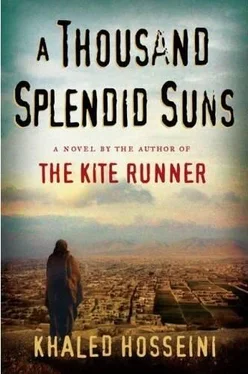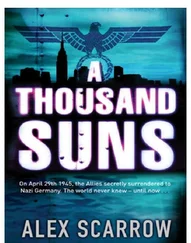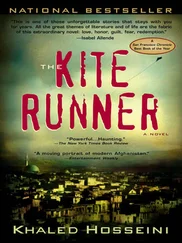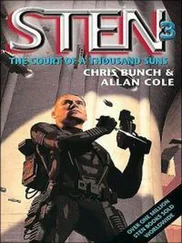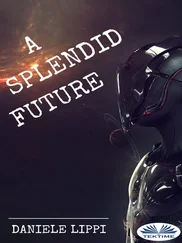"What about Ali Abaci Hospital?" another man cried.
The guard shook his head.
"Wazir Akbar Khan?"
"Men only," he said.
"What are we supposed to do?"
"Go to Rabia Balkhi," the guard said.
A young woman pushed forward, said she had already been there. They had no clean water, she said, no oxygen, no medications, no electricity. "There is nothing there."
"That's where you go," the guard said.
There were more groans and cries, an insult or two. Someone threw a rock.
The Talib lifted his Kalashnikov and fired rounds into the air. Another Talib behind him brandished a whip.
The crowd dispersed quickly.
THE WAITING ROOM at Rabia Balkhi was teeming with women in burqas and their children. The air stank of sweat and unwashed bodies, of feet, urine, cigarette smoke, and antiseptic. Beneath the idle ceiling fan, children chased each other, hopping over the stretched-out legs of dozing fathers.
Mariam helped Laila sit against a wall from which patches of plaster shaped like foreign countries had slid off Laila rocked back and forth, hands pressing against her belly.
"I'll get you seen, Laila jo. I promise."
"Be quick," said Rasheed.
Before the registration window was a horde of women, shoving and pushing against each other. Some were still holding their babies. Some broke from the mass and charged the double doors that led to the treatment rooms. An armed Talib guard blocked their way, sent them back.
Mariam waded in. She dug in her heels and burrowed against the elbows, hips, and shoulder blades of strangers. Someone elbowed her in the ribs, and she elbowed back. A hand made a desperate grab at her face. She swatted it away. To propel herself forward, Mariam clawed at necks, at arms and elbows, at hair, and, when a woman nearby hissed, Mariam hissed back.
Mariam saw now the sacrifices a mother made. Decency was but one. She thought ruefully of Nana, of the sacrifices that she too had made. Nana, who could have given her away, or tossed her in a ditch somewhere and run. But she hadn't. Instead, Nana had endured the shame of bearing a harami, had shaped her life around the thankless task of raising Mariam and, in her own way, of loving her. And, in the end, Mariam had chosen Jalil over her. As she fought her way with impudent resolve to the front of the melee, Mariam wished she had been a better daughter to Nana. She wished she'd understood then what she understood now about motherhood.
She found herself face-to-face with a nurse, who was covered head to toe in a dirty gray burqa. The nurse was talking to a young woman, whose burqa headpiece had soaked through with a patch of matted blood
"My daughter's water broke and the baby won't come," Mariam called.
"I'm talking to her!" the bloodied young woman cried "Wait your turn!"
The whole mass of them swayed side to side, like the tall grass around the kolba when the breeze swept across the clearing. A woman behind Mariam was yelling that her girl had broken her elbow falling from a tree. Another woman cried that she was passing bloody stools.
"Does she have a fever?" the nurse asked. It took Mariam a moment to realize she was being spoken to.
"No," Mariam said.
Bleeding?
"No."
"Where is she?"
Over the covered heads, Mariam pointed to where Laila was sitting with Rasheed.
"We'll get to her," the nurse said.
"How long?" Mariam cried. Someone had grabbed her by the shoulders and was pulling her back.
"I don't know," the nurse said. She said they had only two doctors and both were operating at the moment.
"She's in pain," Mariam said.
"Me too!" the woman with the bloodied scalp cried. "Wait your turn!"
Mariam was being dragged back. Her view of the nurse was blocked now by shoulders and the backs of heads. She smelled a baby's milky burp.
"Take her for a walk," the nurse yelled. "And wait."
IT WAS DARK outside when a nurse finally called them in. The delivery room had eight beds, on which women moaned and twisted tended to by fully covered nurses. Two of the women were in the act of delivering. There were no curtains between the beds. Laila was given a bed at the far end, beneath a window that someone had painted black. There was a sink nearby, cracked and dry, and a string over the sink from which hung stained surgical gloves. In the middle of the room Mariam saw an aluminum table. The top shelf had a soot-colored blanket on it; the bottom shelf was empty.
One of the women saw Mariam looking.
"They put the live ones on the top," she said tiredly.
The doctor, in a dark blue burqa, was a small, harried woman with birdlike movements. Everything she said came out sounding impatient, urgent.
"First baby." She said it like that, not as a question but as a statement.
"Second," Mariam said.
Laila let out a cry and rolled on her side. Her fingers closed against Mariam's.
"Any problems with the first delivery?"
"No."
"You're the mother?"
"Yes," Mariam said.
The doctor lifted the lower half of her burqa and produced a metallic, cone-shaped instrument. She raised Laila's burqa and placed the wide end of the instrument on her belly, the narrow end to her own ear. She listened for almost a minute, switched spots, listened again, switched spots again.
"I have to feel the baby now, hamshira. "
She put on one of the gloves hung by a clothespin over the sink. She pushed on Laila's belly with one hand and slid the other inside. Laila whimpered. When the doctor was done, she gave the glove to a nurse, who rinsed it and pinned it back on the string.
"Your daughter needs a caesarian. Do you know what that is? We have to open her womb and take the baby out, because it is in the breech position."
"I don't understand," Mariam said.
The doctor said the baby was positioned so it wouldn't come out on its own. "And too much time has passed as is. We need to go to the operating room now."
Laila gave a grimacing nod, and her head drooped to one side.
"There is something I have to tell you," the doctor said. She moved closer to Mariam, leaned in, and spoke in a lower, more confidential tone. There was a hint of embarrassment in her voice now.
"What is she saying?" Laila groaned. "Is something wrong with the baby?"
"But how will she stand it?" Mariam said.
The doctor must have heard accusation in this question, judging by the defensive shift in her tone.
"You think I want it this way?" she said. "What do you want me to do? They won't give me what I need. I have no X-ray either, no suction, no oxygen, not even simple antibiotics. When NGOs offer money, the Taliban turn them away. Or they funnel the money to the places that cater to men."
"But, Doctor sahib, isn't there something you can give her?" Mariam asked.
"What's going on?" Laila moaned.
"You can buy the medicine yourself, but-"
"Write the name," Mariam said. "You write it down and I'll get it."
Beneath the burqa, the doctor shook her head curtly. "There is no time," she said. "For one thing, none of the nearby pharmacies have it. So you'd have to fight through traffic from one place to the next, maybe all the way across town, with little likelihood that you'd ever find it. It's almost eight-thirty now, so you'll probably get arrested for breaking curfew. Even if you find the medicine, chances are you can't afford it. Or you'll find yourself in a bidding war with someone just as desperate. There is no time. This baby needs to come out now."
"Tell me what's going on!" Laila said She had propped herself up on her elbows.
The doctor took a breath, then told Laila that the hospital had no anesthetic.
"But if we delay, you will lose your baby."
"Then cut me open," Laila said. She dropped back on the bed and drew up her knees. "Cut me open and give me my baby."
Читать дальше
